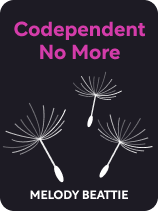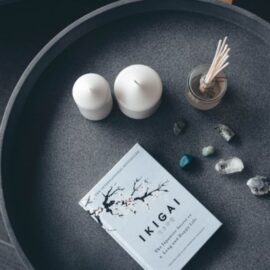

This article is an excerpt from the Shortform book guide to "Codependent No More" by Melody Beattie. Shortform has the world's best summaries and analyses of books you should be reading.
Like this article? Sign up for a free trial here .
Are you looking for tips from Codependent No More by Melody Beattie? What steps can you take to become more independent and happy?
In Codependent No More, Melody Beattie explores codependency and how it affects people’s lives. A self-help classic and the book that inspired codependency 12 Step Programs around the country, Codependent No More provides explanations, advice, and compassion for people struggling with codependency.
Here are four helpful tips from her book.
1. Process the Past
In Codependent No More by Melody Beattie, she suggests figuring out how the past is affecting you so you can move toward the future. Often there are bottled-up emotions from your childhood that you need to release before you can move on. Give yourself permission to feel everything. Accept that these are your feelings and that’s okay. Only once you have accepted the past and processed it will you be able to heal.
| Breaking the Compulsion to Repeat Research confirms that you have to process the past to move forward. Many people think they’ve moved past traumatizing situations when they’ve only repressed their feelings and are still being affected by the past. Freud’s compulsion to repeat theory says you’ll return to the same situations that traumatized you until you stop repressing. To break out of the cycle of repetition, you need to understand and accept your painful past experiences. Therapy is primarily recommended, as it is difficult to recognize your own repressed emotions. However, there are times when past hurts emerge unexpectedly. In these cases, follow Beattie’s advice and feel the emotions fully, no matter what they are. Journaling also helps: It distances you from the situation and helps you clarify your thoughts. |
2. Acknowledge Your Inner Child
Acknowledge that there is a part of you that might always be a scared child craving love and care, Beattie states. Be kind to that part of yourself, and figure out what your inner child is saying. Sometimes listening to the inner child leads you to repressed emotions that you need to work through. Repressing the inner child or hating yourself for its existence won’t help you heal.
(Shortform note: Listening to and caring for your inner child is called “self-reparenting,” where you give yourself the attention and care you lacked as a child. There are four main pillars of reparenting, each an important life skill: Love and Respect, Self-Belief and Self-Confidence, Emotional Management, and Good Communication Skills. Reparenting could take the form of cheering yourself on, talking to yourself gently, or being disciplined about self-care.)
3. Recognize When It’s Not About You
According to Beattie, codependents tend to think everything is related to them. This causes a lot of stress. If you assume a situation or someone’s mood is caused by or directed at you, you’ll constantly analyze their behavior to determine what they want from you. This is unhealthy and gives you less time and energy to focus on yourself.
Assume that the situation or person’s reaction is not about you. Make people express their desires clearly, rather than trying to anticipate and react.
| The Pitfalls of Inductive Reasoning Thinking everything involves you is a kind of inductive reasoning, where you take a single event and make universal assumptions based on that event. This kind of reasoning doesn’t work, but it’s attractive because usually you can’t step back from a situation enough to work from the whole to the specifics. Inductive reasoning keeps people from panicking about whether the sun will rise tomorrow, but it can also lead to dangerous assumptions. Social media increases this self-obsessed inductive reasoning. For example, if someone suggests a certain way of preparing for a job interview, others argue that the advice doesn’t apply to their situation. That’s a form of thinking everything is about you. If the situation doesn’t apply to you, then the advice wasn’t meant for you, but people don’t see that. Even if a situation seems clear, ask a lot of questions and confirm that you are involved in someone’s behavior before worrying. If the situation is about you, detach, determine your level of responsibility, and act accordingly. |
4. Commit to Yourself
Make a commitment of support to yourself, Beattie concludes. Even if other people won’t support you, you can always choose to take care of yourself. Being committed to your own well-being improves your confidence and ability to maintain your boundaries. Pay attention to your needs and wants, and trust that you can handle whatever life throws your way.
| Commit to Yourself Every Day Research confirms that committing to yourself is important and that it isn’t a single act: it’s a goal that you must keep chasing throughout your life. One of the ways you can do this is by making promises to yourself before making them to other people. This process prioritizes your own life. The process for making and keeping self-promises is much like making promises to others. 1. Make sure that you really need or want something before promising it. 2. Examine why you haven’t completed your responsibilities toward yourself in the past. 3. Reward yourself when you keep your self-promises. When other people ask you to make commitments, consider your self-promises before agreeing. Don’t break a self-promise unless absolutely necessary. |

———End of Preview———
Like what you just read? Read the rest of the world's best book summary and analysis of Melody Beattie's "Codependent No More" at Shortform .
Here's what you'll find in our full Codependent No More summary :
- What inspired codependency 12 Step Programs around the country
- Explanations, advice, and compassion for people struggling with codependency
- How to practice detachment, self-care, and personal responsibility






